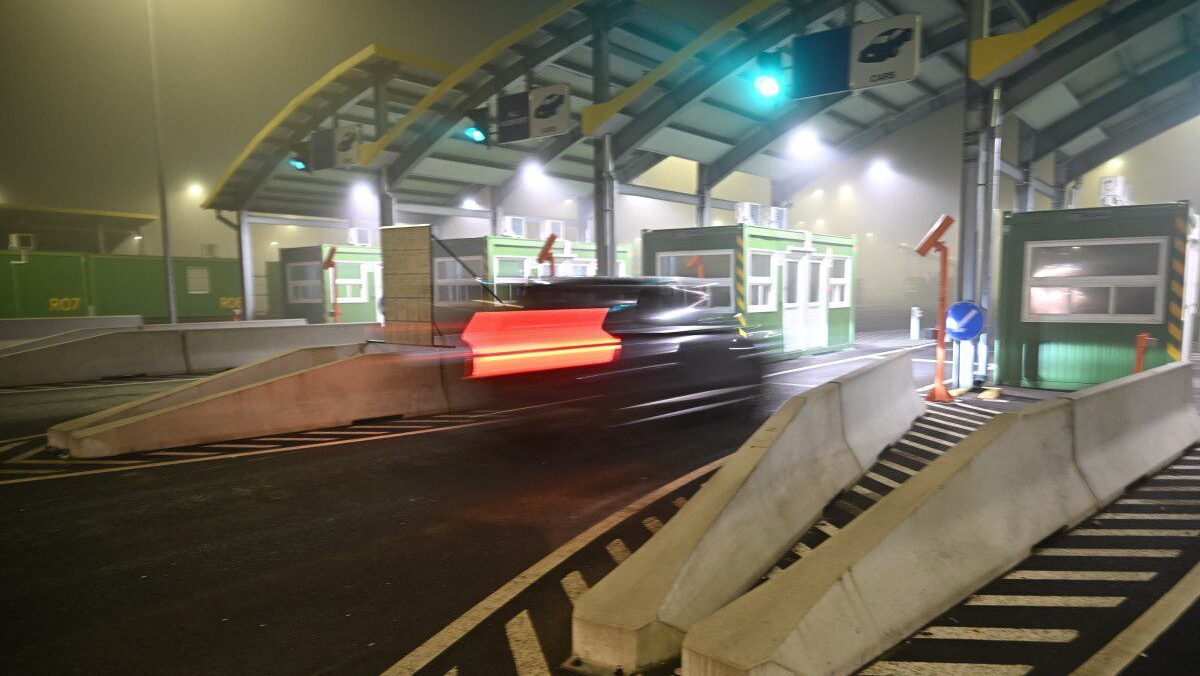
Car crosses a now abandoned border crossing point between Hungary and Romania.
Photo: Attila Kisbenedek / AFP
As of January 1st, Romania and Bulgaria have fully joined the Schengen Area and formally abolished their shared hard borders—and those between them and the rest of the European Union.
The two countries have been waiting for this moment for nearly two decades. They both applied for Schengen membership in 2005, two years before joining the EU in 2007. By 2011, the European Commission also declared them ready to join the free movement area, but they then needed a further 14 years to convince every other member state of their suitability, not least their capacity to defend external borders.
“You have shown vision, patience, and determination,” gushed Commission President Ursula von der Leyen in a now-deleted post on X. “You belong in Schengen.”
The last remaining EU countries to end their veto of the accession were Austria and the Netherlands, both of which formally agreed to the enlargement in December, following months of negotiations led by the European Council’s Hungarian presidency. Budapest also treated Schengen enlargement as one of its priorities during its first presidency in 2011, so last year was the final chapter of this decade-long diplomatic effort.
Schengen enlargement was celebrated as the “most tangible result” of the Hungarian presidency.
🎉 It’s official! As we just entered 2025, Bulgaria & Romania have fully joined Schengen. At midnight, StateSec Levente Magyar removed one of the border gates at the Hungarian-Romanian border, marking the most tangible result of the Hungarian presidency. #HU24EU
— Hungary in the EU (@HU24EU) December 31, 2024
🇭🇺🇪🇺 pic.twitter.com/zlyenOGnZp
According to the ‘Budapest Declaration’—an intergovernmental agreement signed by Austria, Hungary, Romania, and Bulgaria in November—Vienna agreed to lift its veto in exchange for guarantees that the two now member states will continue to ramp up their anti-illegal migration measures and implement random police checks within a 30-kilometer radius of border crossing points in order to prevent migrant smugglers attempting to fill the void.
The agreement provides that border checks shall be carried out by police on both sides for “at least” another six months “to mitigate the potential change of migratory patterns that may arise as an immediate consequence of the absence of internal borders.”
These checks are similar to those implemented by many EU member states in previous years, such as Germany, in response to the steadily growing number of illegal crossings. Some, like Denmark, even floated the idea of reintroducing hard border control to check all incoming traffic—prompting fears that Schengen itself is breaking down due to an inability to prevent illegal entries at the external borders.
Nevertheless, Vienna acknowledged that Romania and Bulgaria have achieved great progress in this regard. Local authorities insist that while they will diligently carry out their duties, as laid out in the agreement, the random checks will not affect the general flow of traffic through the border.
Since midnight, Romania is in Schengen, and the first to cross the border freely was… a dog, coming from Hungary. 💁🏻♂️🤡 pic.twitter.com/iFdy5H4HRs
— one green X (@onegreenx) January 1, 2025
